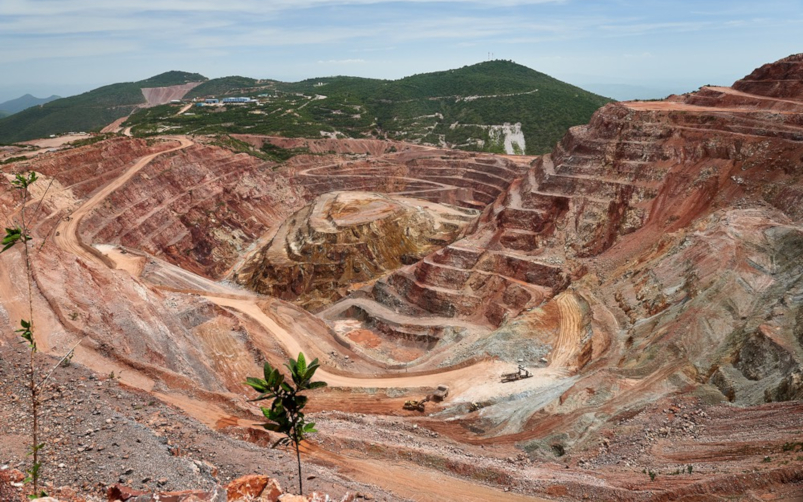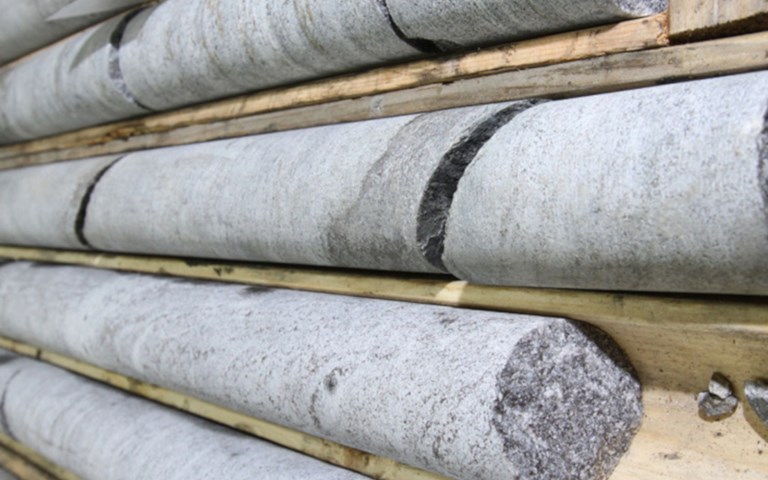Mining companies in Quebec will now be able to demonstrate that their exploration practices are socially and environmentally responsible. Courtesy of Nouveau Monde Graphite
Exploration companies rely heavily on investors to fund their activities. In recent years, investment dollars have flowed away from the exploration sector and towards other emerging industries, such as cannabis and cryptocurrencies. The pressure is on to lure these investors back to the sector and attract a growing new generation of socially responsible, ethical and ecological-impact-minded investors.
To assist with this, the Quebec Mineral Exploration Association (QMEA) and its partners developed a new certification program designed specifically for the mineral exploration sector. Mineral exploration companies do not make a product to put a certification stamp on, unlike forestry for example, so the new program focuses on the exploration process rather than the result. It provides a framework for companies to demonstrate to investors and stakeholders their adherence to three focus areas – environmental, social and economic regulations – as well as their commitment to continuous improvement.
“It is not simply a case of following the rules for your jurisdiction,” said Alain Poirier, project director at QMEA. “It is showing that you are going above and beyond. To be certified, you have to demonstrate that you are following the best practices available and improving on them year after year.”
Poirier has been involved in the development of the certification program since its inception in 2012, when QMEA approached the UQAT-UQÀM (Université du Québec en Abitibi-Témiscamingue/Université du Québec à Montréal) Chair in Mining Entrepreneurship at Rouyn-Noranda to identify any similar programs around the world aimed at mineral exploration companies.
“Nothing about certification exists for the mineral exploration sector,” said Poirier.
QMEA and the UQAT-UQÀM Chair in Mining Entrepreneurship partnered with the Government of Quebec and the MISA Group to develop the standard. UL, an independent, non-governmental organization accredited by the Standards Council of Canada, took over administration of the standards in spring 2019 and, in October 2019, published two new certification programs: UL 2723: ECOLOGO certification program for mining exploration companies and UL 2724: ECOLOGO certification program for service providers in the mining exploration sector.
Initially these programs are available only to companies operating in Quebec, but UL plans to expand the certification program across Canada and potentially to international jurisdictions “in the coming years,” said UL in a news release. According to Poirier, over 90 per cent of the program is already easily transferable to other provinces and territories in Canada with minor modifications.
One area where the new certifications will have the biggest impact, said Poirier, is in the social category. As the first boots-on-the-ground mining representatives in a local community, the social performance of exploration companies and suppliers can play a major role in the success or failure of a future mine. The new ECOLOGO certifications provide a report card for social performance, including consultation and relationship building efforts by companies with affected local communities and Indigenous groups.
“The social aspects of the new certification are what set it apart,” said Poirier. “And this part of the certification has been particularly well received by Indigenous groups and NGOs.”
Another area where the ECOLOGO certifications are particularly useful is for showing commitment to tackling climate change and tracking greenhouse gas emissions. Although mineral exploration activities, such as drilling, mapping, sampling and geophysical surveys, have a relatively small impact on the environment when compared to a fully operational mine, demonstrating a commitment to minimizing climate impact is a universal challenge all companies face.
“We know that mineral exploration companies don’t produce a lot [of greenhouse gases],” said Poirier. “But we all have to address this challenge. To do that, we need to take a picture of what they produce today and see what they can do to improve. We are now building a tool for companies to measure the greenhouse gases they produce because we want companies to do better in the future.”
The greenhouse gas calculator is one element in a suite of tools the QMEA has developed to coach companies through the certification process. QMEA also has a dedicated staff member in place to support companies applying for and maintaining their certification.
Poirier notes that if a new practice or protocol is developed for any of the three focus areas, it will easily fit into the flexible certification framework. For example, the Prospectors and Developers Association of Canada and Mining Association of Canada recently issued a request for proposals to develop a scientific approach to measuring the environmental impacts of mineral exploration activities, and once developed, a company can use a tool like this to measure its impact in the environment category of the certification.
The first company to be certified under UL 2724 for suppliers is Abitibi-based Rouillier Drilling, which also participated in the development of the program. In a press release, company president and CEO Mario Rouillier noted that the certification adds rigour to its existing practices and sets the company apart from its competition.
As of November 2019, 12 companies are certified but not yet announced, and another 13 companies are in the process of obtaining certification.



